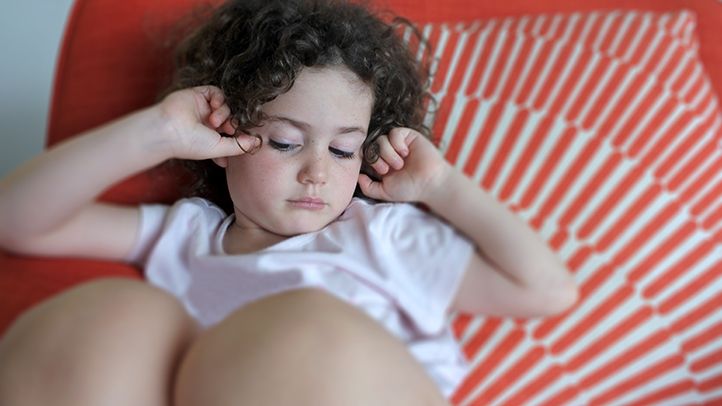
It can often be hard to tell the difference between normal misbehavior and potential mental health issues in children. Since some form of rebellion and acting out is typically expected throughout childhood and adolescence, when does that cross the line into a potential mental health disorder? Read on to find out about six signs your child may benefit from talking to a therapist. We’ve also provided suggestions on how to take action if you do notice any of these signs in your child. Take a look,
1. Changing habits
If your child used to have no problem sleeping through the night but has been complaining they just can’t get to sleep lately, or if they were once a member of the clean plate club but now can’t seem to finish a meal, that’s a sign that there might be an underlying mental health issue. Another example of changing habits to look out for is a sudden drop in school performance, especially in kids who have typically gotten good grades in the past.
ADVERTISEMENT

2. Destructive behavior
Destructive behavior can refer to behavior aimed at others or at oneself. For example, regularly staying up all night on a school night is one example of self-destructive behavior. In addition, aggressive and destructive behavior towards others, whether peers or adults, can also indicate that your child is experiencing challenges with their mental health and should see a therapist.

3. Extreme emotions
It’s completely normal to have emotions and various reactions to situations in life, but if you notice that your child seems much more sad, angry, or fearful than other children their age, that might indicate that they’re having a hard time managing their emotions. In some cases, it could be a sign of a mental health disorder like anxiety or depression.

4. Preoccupation with death
All kids have some curiosity surrounding death, but it becomes problematic if your child is obsessed or completely preoccupied with the idea of death to the point that it affects their day-to-day life. Suicidal thoughts, fears of death, and constant questions about death can all be a part of this, and they often point towards underlying depression.

5. Isolation
For kids to develop properly, it’s extremely important that they socialize with their peers and learn how to function in society. If your child isolates themselves and avoids socializing with others, or if they are cripplingly shy, this could potentially indicate mental health issues that a therapist could help with.
ADVERTISEMENT

6. Frequent physical complaints
Constant upset stomachs, headaches, and general aches and pains can all be the result of stress, anxiety, or depression. Oftentimes, psychological issues manifest through physical symptoms. So if your child hasn’t been feeling well lately and you can’t pinpoint the cause, it may be a sign that they’re struggling with their mental health.

Next Steps
If you’ve noticed any of these signs in your child, it’s worth it to take them to a therapist who can figure out if there’s anything going on mental health-wise.
Here are a few steps to take if you’re not quite ready to book a session yet.
– Gauge their behavior against others of the same age. You can talk to friends with similarly-aged children or visit online forums to see if others are experiencing similar situations with their kids. Oftentimes, you’ll leave the conversation feeling reassured that what your child is going through is pretty common. You can also get plenty of advice from others on how to find a good therapist for your child and how to get the most out of the therapy process.
– Talk to your child about their feelings. For the best information, go straight to the source–but know that your child might not feel comfortable opening up to you. Let them know you’re there if they ever want to talk, and if they’re open to discussing their thoughts and feelings, take them seriously and validate them.
– Don’t be afraid to book a session with a therapist. Therapy is beneficial for everyone, not just those who live with mental health disorders. The process comes with many benefits, and there isn’t any harm in taking your child to speak with a mental health professional. Skills learned in therapy, such as effective communication, conflict resolution, and healthy stress management, can be used throughout the rest of your child’s life.
ADVERTISEMENT

ADVERTISEMENT











